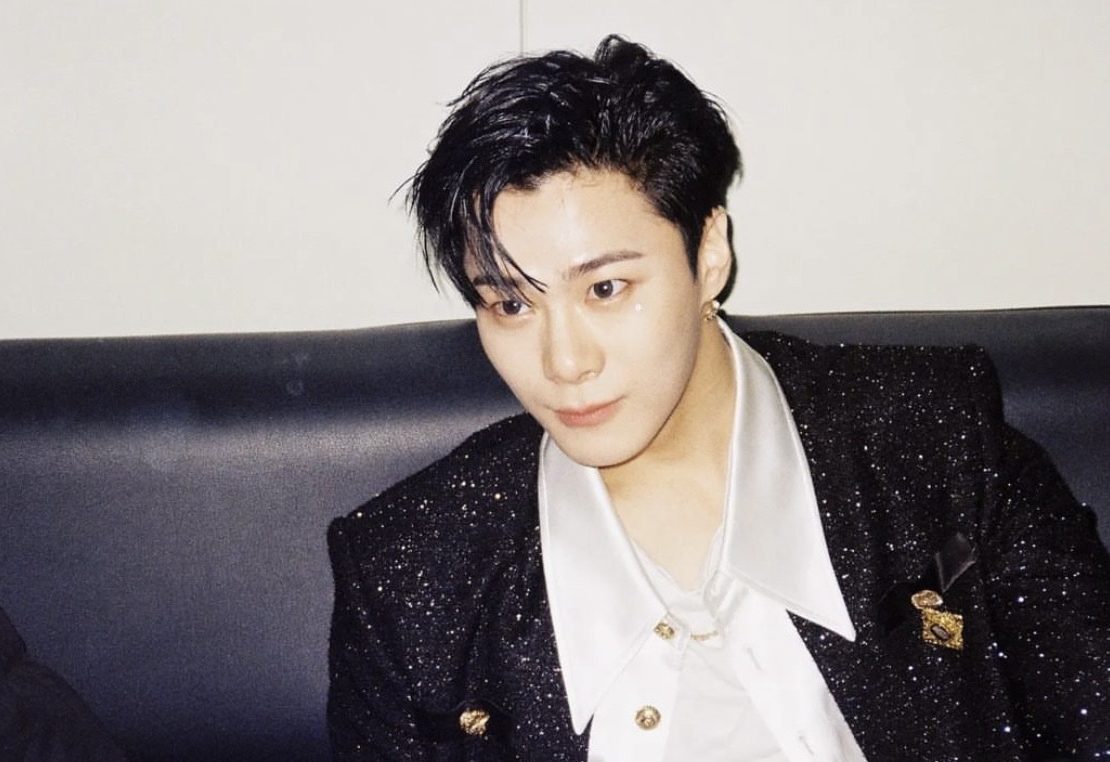K-pop fans across the world are mourning the death of 25-year-old Moonbin, a member of the K-pop boy band Astro.
Local media reports that his manager found the singer unresponsive at his home in the Gangnam district of Seoul in a suspected suicide.
Mooonbin was a child actor before making his debut as a member of Astro in 2016. Being a celebrity in South Korea seems to be a lot different than in any other country. Adult actors have to sneak around hiding their consensual relationships – and if paparazzi ‘expose’ them, most of them ‘apologize’ to their fans over the fear of backlash. Most fans also consider it a ‘right’ to demand obedience from celebrities and have no regard for boundaries. Idols debut as young as 12 years old and there is a lot of pressure to be absolutely ‘perfect’.
Moonbin’s tragedy is the latest in a string of sudden young celebrity deaths to hit the South Korean entertainment industry. Jung Chae-yull, a 26-year-old actress, was found dead in her home earlier this month. Actress Yoo Joo-eun died at the age of 27 in August last year. Sulli, the former member of girl group f(x), died in 2019 aged 25 following a long struggle with online bullying. And her close friend Goo Hara, also a K-pop star, died in her home a month later. Moonbin’s sudden death has sparked a conversation that South Korea is all too familiar with now, and it’s a grave problem that extends outside of its gritty entertainment industry.
At the height of the pandemic, the Netflix survival drama Squid Game took the world by storm – it was a dramatization of despair in South Korea, a country obsessed with youth. In the show, debt-ridden individuals sign up to participate in children’s games that could cost them their lives for a chance to win more than $38 million.
It’s an extremely violent and dystopian take on the country’s culture, unlike the romanticised version we’re used to in K-dramas. But somewhere it resonates with the youth of this country – where suicide has been the number one cause of death for young people since 2007.
For the past two decades, South Korea has had the highest suicide rate among developed nations. Although South Korea’s older adults are still the most likely to die by suicide due to poverty and isolation, young people rapidly suffer from it too. Between 2018 and 2019, the number of South Koreans under the age of 40 who took their own lives rose by 10 per cent.
Outsiders know South Koreans to be extremely formal and polite, an ideal developed country– thanks to the image that K-dramas portray. If you look past the front that it puts up for the rest of the world, you’d find that SK is actually a very conservative society, bogged down by an ongoing economic crisis worsened due to covid. The country’s youth themselves have given up hope, nicknaming the country “Hell Joseon,” likening it to an infernal kingdom one can only escape through death or emigration.
Even before COVID-19, the unemployment rate for young people was nearly three times the national average. In the midst of the pandemic in November 2020, almost 40 per cent of new college graduates gave up their searches for new jobs.
On top of that, there is still a lot of stigma surrounding mental health, even among the youth. Many South Koreans often describe discussions of mental health as taboo, a mindset deeply rooted in the public conscience. The legacy of Confucianism remains a fundamental part of Korean society, shaping the moral system, the way of life, social relations between old and young and high culture and is the basis for much of the legal system. Confucian culture emphasizes individual will and self-discipline which creates a social prejudice against mental health. Traditional Confucian ideals state that we should tolerate mental illnesses/disorders instead of treating them. Beliefs like this make mental health awareness and advocacy work by South Korean physicians largely ineffectual.
The government is starting to take some measures, though. About 3.1% of Koreans aged 19 to 39 are “reclusive lonely young people,” defined as living in a “limited space, in a state of being disconnected from the outside for more than a certain period of time, and have noticeable difficulty in living a normal life,” according to the ministry’s report, citing the Korea Institute for Health and Social Affairs. The Ministry of Gender Equality and Family announced this week that it will provide up to 650,000 Korean won (about $500) per month to isolated social recluses, in a bid to support their “psychological and emotional stability and healthy growth.”
Some researchers also believe that the high suicide rate is connected to the fiercely competitive academic environment and the proliferation of bullying behaviours in South Korean schools. Netflix’s recent K-drama The Glory takes its inspiration from real-life stories of school violence in Korea. The show, in which a woman seeks revenge on her classmates who severely bullied her as a teen, may seem like an exaggeration to outsiders– but South Koreans resonated deeply with the plot, which reflected their reality. As the hit series rattles the country, many victims have come forward to share their ordeals.
In terms of feminist movements, and attitudes towards LGBTQ+ communities, South Korea is barely catching up with the rest of the world. The recent globalisation of Korean dramas has also somewhat made it possible for its citizens to connect with the outside world and expand their narrow worldview. But there’s still a long, dark tunnel to cross before the light – and their youth is suffocating every day.





